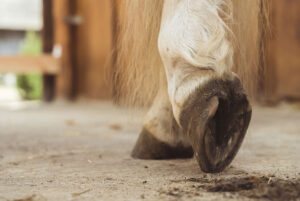Blood Test Misses Mark for Diagnosing Equine Gastric Ulcers

“Unfortunately, in the population of adult horses that we studied, the test appears to be a fail in that it’s not sensitive enough to reliably identify horses with EGUS,” said Michael Hewetson, BSc (Hons), BVSc, Dipl. ECEIM, an internal medicine specialist at the University of Helsinki Faculty of Veterinary Medicine, in Finland.
“It’s a disappointment, as we were hopeful that the diagnostic accuracy of the test would be good following some promising early results in a pilot study that we had performed back in 2006,” he said.
That 2006 study, which focused on sucrose content in blood samples, followed a 2004 pilot study on sucrose levels in urine
Create a free account with TheHorse.com to view this content.
TheHorse.com is home to thousands of free articles about horse health care. In order to access some of our exclusive free content, you must be signed into TheHorse.com.
Start your free account today!
Already have an account?
and continue reading.

Related Articles
Stay on top of the most recent Horse Health news with


















